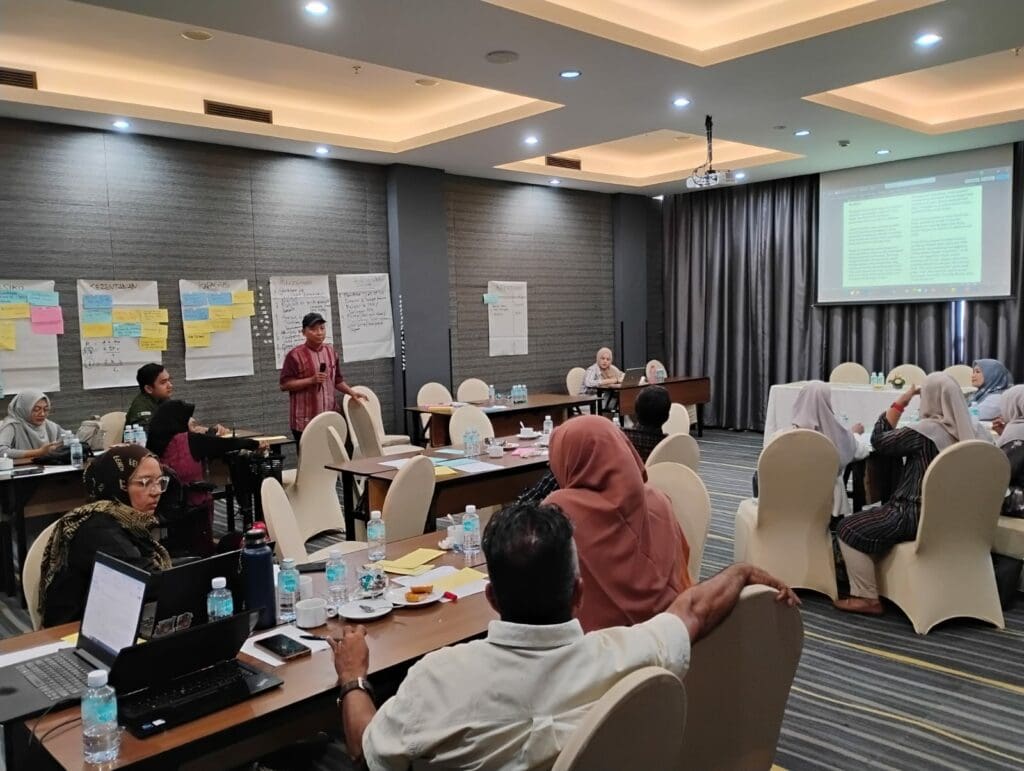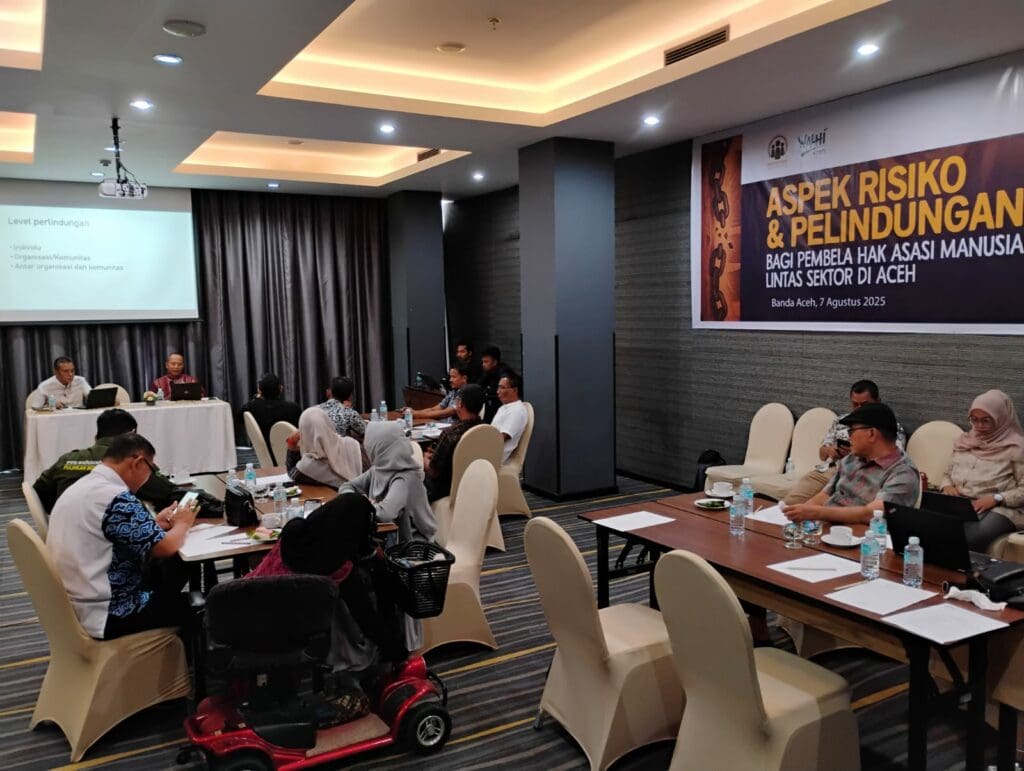On August 7, 2025, Protection International Indonesia, in collaboration with WALHI Aceh, held a Seminar and Workshop on Risk and Protection of Human Rights Defenders in Aceh, the westernmost province of Indonesia. Aceh has long been recognized for its complex socio-political dynamics and human rights challenges, rooted in decades of armed conflict that began in 1976 between the Free Aceh Movement, which sought independence from Indonesia, and the Indonesian military. The conflict officially ended with the signing of peace agreement in 2005, following the devastating earthquake and tsunami that struck Aceh and other parts of Southeast Asia in 2004.
The seminar and workshop aimed to examine the challenges and experiences faced by Human Rights Defenders (HRDs) in Aceh across various sectors. The event was attended by approximately 30 participants representing civil society organizations in the province.
During the seminar session, a representative from the Regional Office of National Commission on Human Rights (Komnas HAM) reaffirmed the institution’s commitment to providing protection for HRDs who face threats or violence. Meanwhile, a speaker from Aceh Legal Aid emphasized the importance for HRDs in Aceh to conduct risk assessments to anticipate possible threats or retaliations from parties negatively affected by their advocacy. Meanwhile, a representative from an organization for Women’s Solidarity highlighted that neither the government nor the wider community has yet considered protection for HRDs as a matter of importance, despite the prevalence of violence against them—particularly gender-based violence. A speaker from Flower Aceh, a local women’s organization in the province, added that special attention must be given to HRDs working in remote rural areas, where risks are often heightened.
In the workshop session, facilitated by Protection International, participants engaged in a practical risk analysis exercise, which included identifying threats, assessing vulnerabilities, and mapping capacities. By the end of the activity, participants collectively agreed on the urgency of conducting joint risk assessments and developing shared security protocols that could serve as tools to respond to and manage threats
Beyond capturing the risks faced by HRDs in the post-conflict context—particularly in relation to the fulfillment of victims’ rights—the seminar and workshop also shed light on the situations experienced by HRDs working on environmental issues, gender equality, and the rights of persons with disabilities in Aceh.



